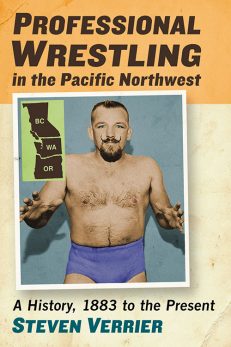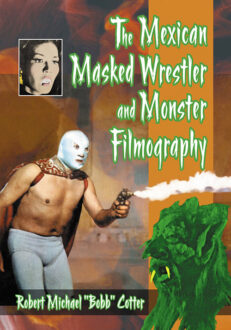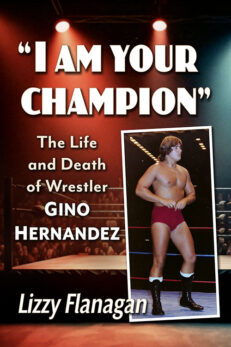CALL FOR PAPERS: Veterans in Society
“Veterans in Society: Broadening the Discourse”
2nd Annual Veteran Studies Research Conference 2014 (VSC2014)
Virginia Tech & Hotel Roanoke, Roanoke, VA April 27–28, 2014
Call for Papers
An interdisciplinary conference, sponsored by the Center for the Study of Rhetoric in Society (CSRS) at Virginia Tech, will be held at the Hotel Roanoke & Conference Center to bring together multiple perspectives on the many issues surrounding veterans in society. Our goal is for the conference to lead to the formation of a multi-disciplinary, international scholarly community with its own calendar of events and digital presence. This year’s conference will broaden the discussion by focusing on the role of the arts and the humanities in shaping policy and addressing some of the difficult social issues faced by veterans and their families.
Topics may address but are not exclusively restricted to the following questions:
- When governments and the private sector offer services to veterans, they project identities on people they label “veterans.” In what respects are there blind spots or problematic assumptions in the existing research and service-delivery agendas that disadvantage some veterans?
- Who “counts” as a veteran? Have some kinds of service, experiences, needs, or potentials arbitrarily been privileged (or devalued) over others?
- How have veterans themselves made meaning of their military and civilian experiences?
- What do historical, comparative, and literary perspectives bring to our understanding of military service and the post-military experiences of veterans vis-à-vis their civilian societies? Conversely, in what respects might such “lessons” be spurious?
Finally, because this research area of veterans studies is broadly defined, we solicit research that
- Invites scholars and service providers – and veterans – to examine the experiences of military personnel and veterans from countries other than the United States, other wars than the recent American-led conflicts in Iraq or Afghanistan, and other settings than active duty in hot conflicts;
- Discusses other people whose experiences substantially paralleled and even intersected those of wartime military veterans (e.g., diplomats, journalists, civilian contractors in their various capacities) but who are not usually regarded as veterans;
- Analyzes veterans’ use of politics and civil society, not as clients with needs defined by service providers but as active participants;
- Analyzes representations of veterans in literature, film, social media, or other genres;
- Discusses / represents how veterans use literature, music, and other creative media, whether as creators expressing themselves or as audiences for whom those creations may have special significance or value.
Cornerstones of the Event
The event will begin on Sunday night with a production by Outside the Wire (www.outsidethewirellc.com), a social impact company that uses theater and a variety of other media to address pressing public health and social issues, such as combat-related psychological injury. Their Theater of War (ToW) presents readings of Sophocles’ Ajax as a catalyst for a facilitated town hall discussion about suicide, combat stress, alcohol and substance abuse, and the impact of war on families. For the past three years, this groundbreaking initiative has been a catalyst for powerful dialogue at military installations worldwide, as well as at colleges, universities, and regional theaters. More than 100 acclaimed actors have participated, including Blythe Danner, Paul Giamatti, Charles S. Dutton, Terrence Howard, David Strathairn, Debra Winger, and Dianne Wiest. At least one actor of this caliber will perform.
The second foundational element of our event will feature a session entitled, “Growing Up Military,” led by Donna Musil, the founder of the nonprofit Brats Without Borders, who wrote and directed the award-winning film Brats:
Our Journey Home. This film documented the “hidden American subculture” of more than 15 million people raised in the military system. After screening key sections of the film, Donna Musil will discuss her experiences working with military brats of all ages, including considerations of the ways in which today’s young (~18 and under) military kids—having grown up in a decade of war—might also be seen as veterans.
In addition, we will offer a panel entitled “Support Our Troops? A Community in Dialogue.” In August 2013, a Virginia Tech professor published a controversial op-ed piece with Salon.com on why he objects to corporate fundraising campaigns that use the phrase “support our troops.” In the weeks that followed, community members participated in wide-ranging discussions responding to the article and language choices surrounding the military in society. This panel will include representatives from both military and civilian perspectives; panelists will address strategies for making conversations across ideological differences more productive.
We welcome all suggestions for the conference, as well as offers to chair sections and round-table discussions.
Submission Guidelines
The conference organizers anticipate that most successful proposals will be for papers presenting completed research and technical papers. However, we encourage proposals that present promising, provocative work in progress as well as academically sound research that may use nontraditional formats/media.
Authors should submit abstracts of no more than 500 words for blind review: do not include author names, affiliations, or other personally identifiable information.
All submissions should conform to a widely accepted style that will be intelligible to an interdisciplinary audience (e.g., APA, MLA, Chicago).
Important Dates
- Jan 10, 2014: Submission due
- Jan 30, 2014: Notification (Accept, Conditional Accept, or Reject)
- July 1, 2014 (estimated): Submission of contributions to proceedings
- Sept 15, 2014 (estimated): Public availability of proceedings
Procedures
As previously, we hope the findings presented at VSC2014 will generate wide-ranging conversations that span disciplines, institutional affiliations, generations, and veteran/military/civilian status. We encourage high-level participation from all quarters, including professionals in fields pertaining to veterans, independent scholars, graduate students, and advanced undergraduates.
Authors will present their research in two phases:
- Proposals. Please submit an abstract of no more than 500 words prepared for blind peer review and a cover letter providing contact information for the author(s). The results described must not be under consideration for publication elsewhere.
- Contributions to proceedings. Authors will have a reasonable, limited time to revise their formal presentation’s content and formatting for publication in the online conference proceedings. Authors may also include slide decks of the presentations, handouts, and other supplemental materials as part of the proceedings. Multimedia elements such as video or audio clips may be incorporated into the papers or submitted as supplemental files. Contributions to the proceedings will be curated by the Virginia Tech libraries to promote their widespread discovery, access, and preservation at no cost to authors or the public. Authors will retain their own copyrights.



